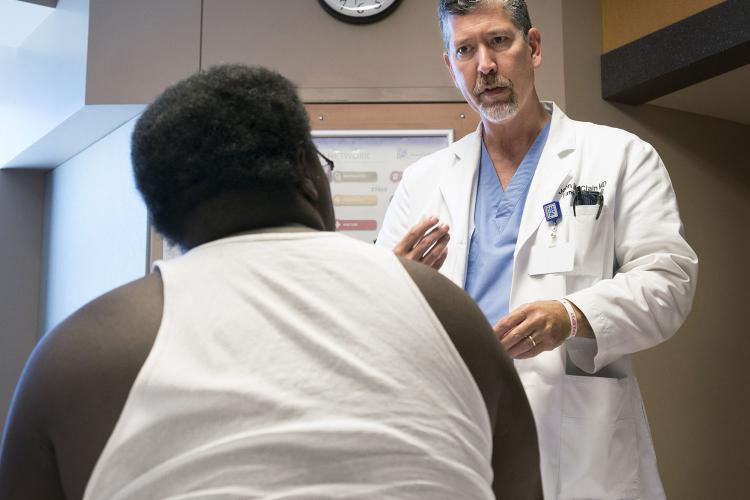
Going to see the doctor can be a stressful time for some people.
In addition to distractions caused by concerns about their health, some folks feel as if they are under pressure to explain themselves to their physician as quickly as possible so the doctor can keep up with his or her busy schedule. Patients can become flustered when they rush through their visit or lose focus, short circuiting their chance to get the help they need.
Dr. Masheika Jackson, a Family Medicine provider with Acclaim Physician Group at JPS, said going to your doctor visit unprepared is like showing up for a test you didn’t study for: The results have a high likelihood of being a disappointment.
It’s important to be prepared when you go see your physician to make the most out of the time,” Jackson said. “By getting ready ahead of time, patients can organize what they want to discuss with their doctor – and the physician will have the best information available to find answers.”
Things you should do to prepare for your upcoming doctor visit:
Keep a diary of your symptoms so you don’t forget anything. Be honest and don’t leave things out. Sometimes people omit details because they think they’re insignificant. Other times they skip over things because they’re embarrassed. Those little details might make the difference between the doctor making the correct diagnosis and your problem lingering on into the future. There is no reason to be embarrassed. Physicians are professionals and they’ve heard it all before. Besides, your medical information is strictly confidential. Never be afraid to level with your physicians.
Call ahead to make sure you’ve completed all prerequisites before your appointment. “If you were supposed to have blood drawn or have other testing completed before your visit and you forget, there isn’t going to be much for us to talk about,” Jackson said. “Check in with your doctor’s office a few days ahead of your appointment so you can be sure you’ve taken care of everything you need to do before you arrive.
Know the medications you’re taking. People often visit multiple doctors and one physician might not know what the others have prescribed for you. Mixing medications can be dangerous, so it’s important you share accurate information about everything you’re taking with all your providers. A handy tip is to use your cell phone to take photos of the labels on all of your medicine bottles then show them to your doctor. Make sure that the label is legible and in focus.
Bring any records you have. JPS keeps patients connected through electronic records. Through the MyChart portal, they can access their own records, communicate with care team members, see test results and check scheduled appointments. But people often go to places such as urgent care clinics that don’t share their medical information with other healthcare institutions, Jackson said. So, bring along the after-visit summaries you get at those places when you go to see your doctor.
Make a list of all the physicians you’re seeing that includes their contact information. People assume electronic medical records tell the whole story of your interaction with healthcare providers, Jackson said. But different organizations have different computer software and it doesn’t always work well together. Contact information can help physicians fill in the gaps.
Be prepared to take notes. The doctor is likely to have specific instructions and there might be a lot of them. You want to make sure you get it all right when you’re trying to remember the details later, so bring a notebook and write it all down. In order to protect the private information of its patients, JPS does not allow electronic recording within its facilities.
